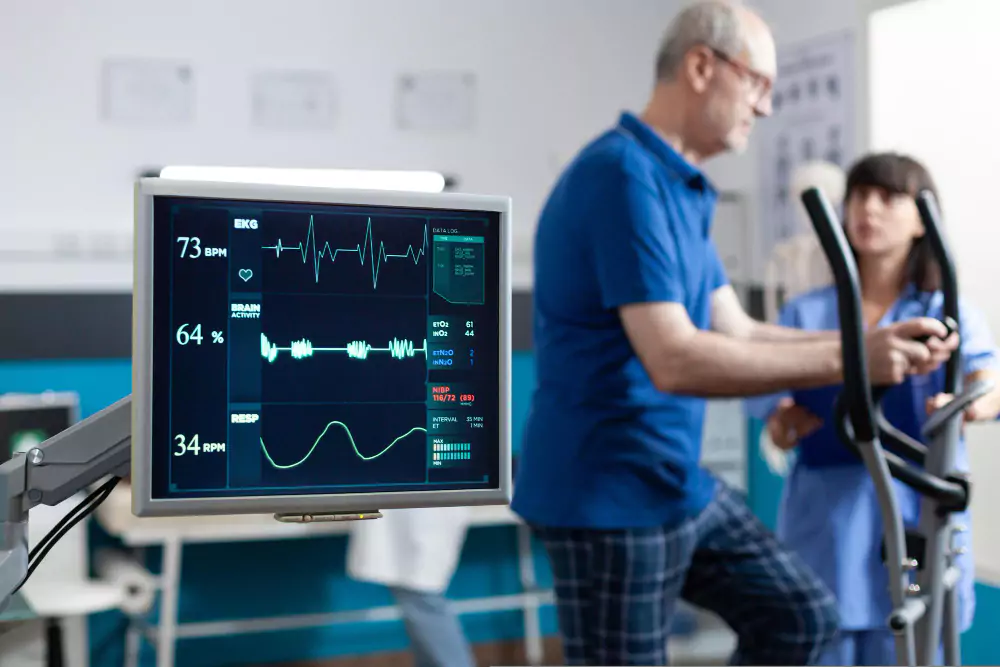- +91-9646076888
- gauravmohan80@yahoo.co.in
- Amritsar, Punjab
ECG & Holter Monitoring
- Home
- ECG & Holter Monitoring

Electrocardiogram (ECG)
An Electrocardiogram (ECG) is a quick, non-invasive test that records the heart’s electrical activity to detect rhythm abnormalities.
✔ Indications: Recommended for patients experiencing palpitations, chest pain, dizziness, shortness of breath, or suspected heart conditions.
✔ Procedure:
Electrodes are placed on the chest, arms, and legs.
The machine records the heart’s electrical impulses to detect irregularities.
✔ Purpose:
Diagnoses arrhythmias, heart attacks, and conduction disorders.
Assesses the effect of medications or pacemakers.
✔ Benefits:Fast, painless, and radiation-free.
Provides an instant snapshot of heart rhythm and electrical activity.
Holter Monitoring
A Holter Monitor is a portable ECG device that continuously records heart activity over 24 to 72 hours or longer.
✔ Indications: Used for patients with intermittent palpitations, fainting, unexplained dizziness, or suspected arrhythmias that may not appear in a standard ECG.
✔ Procedure:
Small electrodes are attached to the chest, connected to a compact monitor.
The patient wears the device while carrying out normal activities.
✔ Purpose:Detects silent arrhythmias, atrial fibrillation, or irregular heartbeats that occur sporadically.
Assesses the effectiveness of heart medications or implanted devices.
✔ Benefits:Continuous monitoring provides a more accurate diagnosis.
Helps guide treatment decisions and personalized care plans.
With UK expertise in cardiac rhythm diagnostics, Dr. Gaurav Panchal ensures precise and comprehensive heart monitoring for accurate diagnosis and effective treatment.
Book an appointment today for expert cardiac evaluation